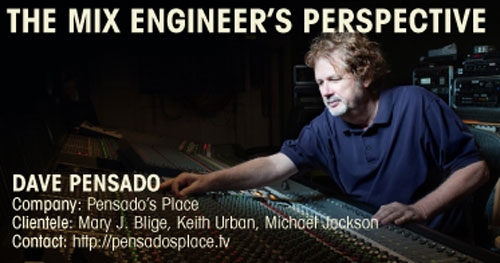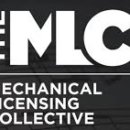Grammy-winning mix engineer Dave Pensado has been in the biz since the ‘70s. Two years ago, aided by friend and collaborator Herb Trawick, he created Pensado’s Place, a professionally produced Internet mixing show. To date, their YouTube channel has grabbed more than five million views with nearly 200 videos. Guests have included Chris Lord-Alge, Bob Clearmountain and Young Guru. Pensado brings the mixer’s perspective to this year’s mastering roundtable.
What are the top three ways to trim costs before sending a mix to be mastered?
• Make sure you know what you want from mastering. Do you want it for iTunes or HD? Get that information to your mix engineer sooner rather than later.
• Sometimes clients forget exactly what they want mastered. There might be a radio or extended version. If their song is used in film or TV, they’ll likely want control over the vocals so they can weave it in and around dialogue.
• Artists should be prepared when they go to mix. That makes everything smoother and less expensive.
How often do you speak with a project’s mastering engineer and at what point does that happen?
That happens on just about all of my mixes. I’m a big believer in having a relationship with mastering engineers. There are three or four guys I use 90% of the time. They have standing orders that if something doesn’t sound right, let me know so I can correct it. That rarely happens because I tend to work in the same spot every time. But it has to be a communicative relationship. If it’s not, you should probably find someone else. All the great ones make themselves available.
Do you caution clients about the need to mix a certain way so that mastering is later optimized?
If I don’t know who’s going to master my mix, I leave less for them to do. If I do know who’s mastering, I leave them a lot to do. The guys I use mainly are Brad Blackwood, Dave Kutch, the guys at Sterling [Sound] and Alex
DeYoung. I’ve left some out, but we’re blessed to have such gifted mastering engineers.
Do you do anything in playback to approximate or simulate for the client what a tune will sound like when mastered?
Not often. One of the things that I love about great mastering engineers is that they have an innate ability to take what you give them and improve it slightly or make it better. That’s the whole point of sending a mix to the next phase. The greats always surprise me with something I didn’t think [a mix] needed. Some of the guys I work with do a conservative master and then a master that they like. Most of the time I like their preferred version better.
What are the top three ways to enhance your relationship with your mastering engineer?
• Common social principles apply. Always ask the mastering engineer what you can do to make his life easier.
• Send them a lot of business. If you want special treatment at a restaurant, you can’t go once every five years.
• Support them. Tell your friends when they do good work and be an enhancement to them. It’s not uncommon for me to post [on social media] when a guy truly nails something.
What are your thoughts about the value that mastering engineers add to a project? Sometimes higher-level mix engineers make light of their contributions.
There can be tension. And there should be. Harmony, peace and love do not foster creativity. Creativity is enhanced by tension, challenge and conflict. It can be an ugly process. You can try to push the envelope on the low end; on apparent level. Then you have to trust your mastering engineer to be your safety net; to be the guy that calls and says, “Dave, you might want to back off a bit.” You trust him to do it and it sounds great. They don’t just make things better. Sometimes they guide you so you won’t make a mistake.











